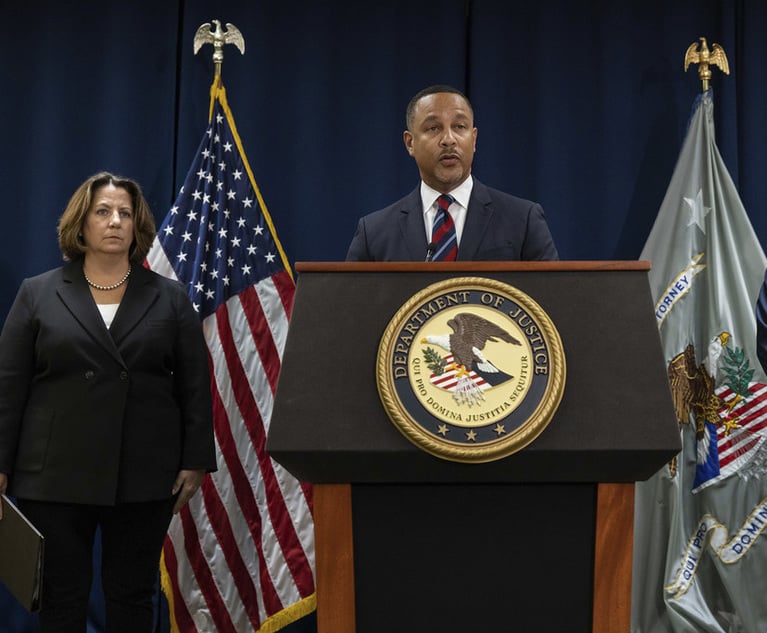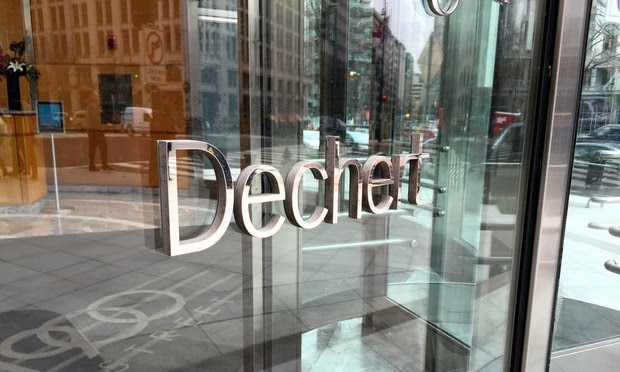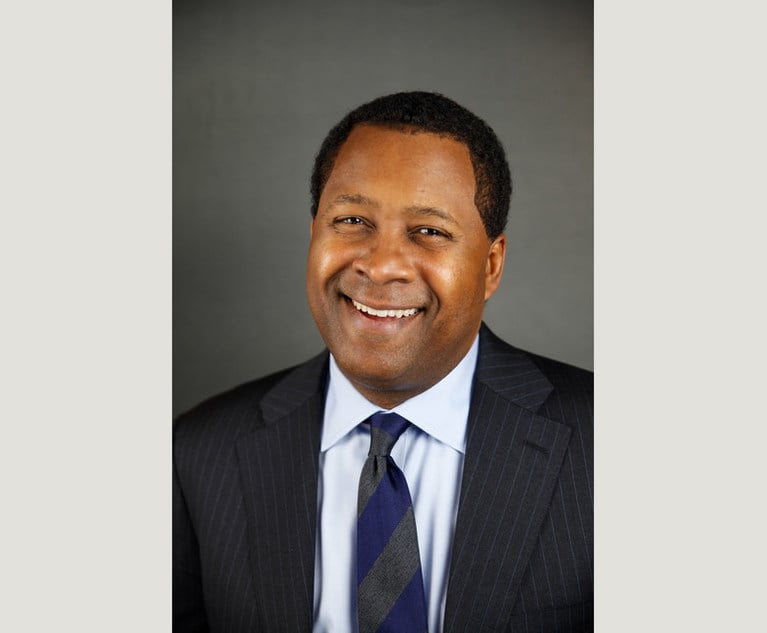Compliance Hot Spots: These Firms Picked Up Ex-Congressional Lawyers | The Coming Congressional Investigations Wave | Plus: Who Got the Work
This week we're talking to congressional investigations specialists about their expectations on the uptick in investigations—plus: more firms are hiring former counsel on Capitol Hill. Scroll down for Who Got the Work and a roundup of compliance headlines that caught my eye. Thanks for reading!
November 13, 2018 at 09:00 PM
11 minute read
Welcome to Compliance Hot Spots, our briefing on compliance, enforcement and government affairs. It's been a week since the “blue wave” and companies are already preparing for a flood of congressional investigations by U.S. House Democrats. Plus: A company learns the hard way about what happens when you fail to live up to the terms of a Federal Trade Commission settlement, and Tesla loses a securities lawyer.
Thanks for reading—and please do send feedback. I appreciate hearing from you about what's on your plate—observations, trends, new clients. I'm at [email protected] and 202-828-0315, or follow me on Twitter @cryanbarber.
A 'Wave' of Congressional Investigations
After rising to head the House Oversight Committee following the 2006 midterms, then-U.S. Rep. Henry Waxman said Congress's oversight role was “just as important, if not more important, than legislation.” Waxman would make use of that power, unleashing a rapid fire of quick investigations—many but not all of them related to the George W. Bush administration.
A decade later, with the Democratic victories in last week's midterms, the same dynamics are lining up. House Democrats are poised to use their investigative powers to probe the Trump administration, but companies are preparing for the day when they too enter Congress' crosshairs.
Over at Steptoe & Johnson LLP, Jason Abel put it like this in a recent interview with my colleague Ryan Lovelace: “Every single House committee will launch investigations in some way, shape, or form—and not just of the Trump administration.” Indeed, the tech, financial services, pharmaceutical and energy sectors are expected to draw especially close attention, according to a client advisory posted by Skadden, Arps, Slate, Meagher & Flom.
“Congressional investigations can be an effective way to make policy, particularly when legislating is difficult,” Covington & Burling partner Brian Smith told me, adding that they “are a way to make policy even in an environment where legislating is hard.”
While House Democrats have a clear appetite for probing the Trump administration, Smith said companies “should not assume” that congressional investigators will only focus on agencies and cabinet officials.
“The stakes are incredibly high. Not all clients appreciate that immediately. Some clients have a misconception that Congress can just issue critical press releases. After many high-profile examples, more companies are understanding the stakes of a congressional investigation,” he said.
In a recent client alert, Buckley Sandler LLP predicted a “wave of congressional investigations” in 2019, with the frequency and intensity of the probes only growing as the 2020 election draws near. House Democrats, the firm said, can be expected to wield their subpoena power to informally make policy and shape the presidential campaign. Meanwhile, the White House is reportedly moving to beef up its legal team for the expected wave of congressional investigations.
One House committee to keep an eye on: the House Financial Services Committee. After years of criticizing the Consumer Financial Protection Bureau, the committee is expected to scrutinize large banks, payday lenders and mortgage companies. U.S. Rep. Maxine Waters, the committee's incoming chairwoman, recently told Reuters she wants to bring in the heads of the biggest banks. Waters has also signaled an interest in targeting student loan companies and credit reporting agencies.
“She can be expected to push the CFPB and other federal agencies to take a more aggressive approach to enforcement and oversight. Finally, Rep. Waters, long a critic of the so-called megabanks, will likely use her committee's power to make the case for stronger capital requirements and greater accountability to consumers,” according to Buckley Sandler's client advisory.
➤➤ Law firms have been making moves to prepare for the coming crush of congressional investigations.
McDermott Will & Emery is bringing on Samuel Dewey, senior counsel on the House Financial Services Committee, as a senior legislative adviser in early December, said Stephen Ryan, a partner at the firm and a leading congressional investigations lawyer. Dewey, a former associate at Gibson, Dunn & Crutcher, served as chief investigator and counsel for the U.S. Senate Special Committee on Aging before jumping to the House in 2017.
As I noted in a recent Compliance Hot Spots, Wilmer Cutler Pickering Hale and Dorr hired Sean Hayes, the former director of oversight at the Department of Health and Human Services. Wiley Rein LLP has picked up Peter Hyun, a former chief counsel to U.S. Sen. Dianne Feinstein, as a partner focusing on congressional and government investigations.
Firms remain on the hunt for new hires with ties to Democratic lawmakers. Describing the conversations inside companies, the Democratic lobbyist Heather Podesta put it this way to Politico: “Who knows House leadership? Who knows Pelosi? Who is the Congressional Black Caucus lobbyist that we need to hire?”
Compliance Headlines: MoneyGram's Mistake | Whistleblower Reform? | Goldman Sachs' Woes
>> MoneyGram learned a costly lesson last week: Live up to the terms of past settlements or pay the price, Corporate Counsel reports. The money transfer company, represented by Williams & Connolly, paid $125 million to the Federal Trade Commission to resolve claims that it failed to take steps required under a 2009 settlement with the agency to address fraudulent transfers. “The FTC's 2009 order required MoneyGram to protect consumers from fraud through its money transfer system, and today we are holding MoneyGram accountable for its failure to do so,” FTC Chairman Joe Simons said in a statement. “MoneyGram's alleged failure to implement key provisions of the order allowed scammers to continue to use its money transfer system to rip off consumers.”
>> Whistleblower advocates have raised concerns that the SEC's push for added discretion to lower bounties would deter high-ranking insiders from coming forward with tips. As one notable tipster put it, the proposal would be “a gift to the major investment banks and other large public companies.” A former top enforcement attorney at the SEC isn't buying it. Covington & Burling partner Gerald Hodgkins, a former associate director in the commission's enforcement division, said recently that the argument advanced by whistleblower advocates is “questionable given the size of some SEC awards.” Hodgkins told Corporate Crime Reporter: “There are already pretty substantial awards. I don't think the cap is going to deter individuals from coming forward.”
>> Former Goldman Sachs CEO Lloyd Blankfein is catching heat for attending two meetings with the Malaysian financier at the center of one of the world's largest financial scandals. The Wall Street Journal reports that one of the meetings was held after Goldman Sachs' compliance department raised concerns about the financier and cautioned against doing business with him. Goldman is defending Blankfein, saying he met many people and couldn't have known that the financier, Jho Low, would be in attendance at either meeting. Malaysia's prime minister, Mahathir Mohamad, said Goldman Sachs “cheated” the country in dealings with the state fund 1MDB. The statement came amid growing calls to recoup fees earned by the bank, Reuters reports.
>> Opening shot. The U.S. government's recent crackdown on a Chinese state-owned chip maker was merely the first move in a larger, multi-faceted plan to counter intellectual property theft. The Wall Street Journal reports that the U.S. government is going beyond tariffs, with plans to use export controls and indictments. A recent example of the new approach came with the economic espionage charges against against the Chinese chip maker Jinhua and its business partner, Taiwan chip maker United Microelectronics Corp.
Who Got the Work
>> Hogan Lovells partner Greg Lisa represented online trading platform EtherDelta's founder Zachary Coburn in an SEC enforcement action. My colleague Dan Clark said the action “was the first time the commission went after such a platform based on findings that it operated as an unregistered securities exchange.” Coburn did not admit or deny the SEC's findings. He agreed to pay $300,000 in disgorgement and a civil penalty of $75,000.
>> Citibank paid more than $38.7 million to settle allegations that it improperly handled so-called American Depository Receipts—U.S. securities that represent foreign shares of an overseas company. According to the SEC, Citibank pre-released the receipts even when brokers or their customers had the foreign shares to support those transactions. “Such practices resulted in inflating the total number of a foreign issuer's tradable securities, which resulted in abusive practices like inappropriate short selling and dividend arbitrage that should not have been occurring,” the SEC said. Citibank was represented by Davis Polk & Wardwell partner Angela Burgess, co-leader of the firm's white collar criminal defense and government investigations group.
>> Skadden Arps partner Richard Marmaro represented James Mazzo, the former CEO of Advanced Medical Optics, in a $1.5 million settlement with the SEC resolving insider-trading allegations. Mazzo was accused of tipping off a friend, former professional baseball play Douglas DeCines, to his company's acquisition. DeCines made more than $1.3 million in ill-gotten gains as he traded on Mazzo's tips, the SEC alleged. “When it comes to insider trading, the fact that the insider does not directly share in the tippee's ill-gotten gains does not excuse his decision to benefit a friend at the expense of other shareholders,” said Kelly Gibson, associate regional director for enforcement in the SEC's Philadelphia office. Under the settlement, which is subject to court approval, Mazzo also agreed to be barred for five years from serving as an officer or director at a publicly-listed company.
>> ITG Inc., represented by Wilmer Cutler Pickering Hale and Dorr partner Elizabeth Mitchell, paid $12 million to resolve the Securities and Exchange Commission's allegations that it improperly disclosed dark pool trading information. In spite of assurances it would keep that information confidential, ITG sent daily “Top 100” reports for the prior day's trading information from 2010 to 2015, according to the SEC. ITG was also charged with failing to establish adequate safeguards to protect confidential trading information.
Notable Moves, and One Nomination
>> Anthony Kelly, the former co-chief of the SEC's asset management unit, is joining Dechert in Washington after 18 years with the commission, my colleague Dan Packel reports. “Anthony has shown himself to be a consummate leader and mentor within the division,” said Stephanie Avakian, co-director of the SEC's enforcement division. “Through his thoughtfulness and fairness on matters within the fund industry, he exemplifies the best of the division. We will truly miss him.”
>> “An experienced securities lawyer is leaving Tesla Inc. just as the company needs one under its fraud settlement with U.S. regulators. Phil Rothenberg, a vice president in Tesla's legal department, will become a chief legal officer elsewhere,” Bloomberg reports.
>> Neomi Rao will get Trump's nod to take Brett Kavanaugh's seat on the D.C. Circuit. Rao has led the administration's push to curtail regulations.
>> Ricardo King has been named chief compliance officer and general at the student loan collections company Credit Adjustments Inc., my colleague Kristen Rasmussen reports in Corporate Counsel. “One of the things that attracted me to this opportunity was the ability to work for an organization that is not only an industry leader in receivables management, but also one that is an active corporate citizen seeking to positively impact all of the communities in which they operate,” King said.
This content has been archived. It is available through our partners, LexisNexis® and Bloomberg Law.
To view this content, please continue to their sites.
Not a Lexis Subscriber?
Subscribe Now
Not a Bloomberg Law Subscriber?
Subscribe Now
NOT FOR REPRINT
© 2025 ALM Global, LLC, All Rights Reserved. Request academic re-use from www.copyright.com. All other uses, submit a request to [email protected]. For more information visit Asset & Logo Licensing.
You Might Like
View All
Compliance Hot Spots: GOP Eyes ESG as an Antitrust Issue + Another DOJ Crypto Seizure + Sidley Partner Jumps to Main Justice
9 minute read
Compliance Hot Spots: Lessons from Lafarge + Fraud Section Chief Talks Compliance + Cravath Lands FTC Commissioner
11 minute readTrending Stories
- 1U.S.- China Trade War: Lawyers and Clients Left 'Relying on the Governments to Sort This Out'
- 2Willkie Adds Five-Lawyer Team From Quinn Emanuel in Germany
- 3AI Discrimination and the 10-Step Bias Elimination Audit
- 4Return to Work Mandates Among Current Mental Health Stressors for Legal Professionals
- 5Friday Newspaper
Who Got The Work
J. Brugh Lower of Gibbons has entered an appearance for industrial equipment supplier Devco Corporation in a pending trademark infringement lawsuit. The suit, accusing the defendant of selling knock-off Graco products, was filed Dec. 18 in New Jersey District Court by Rivkin Radler on behalf of Graco Inc. and Graco Minnesota. The case, assigned to U.S. District Judge Zahid N. Quraishi, is 3:24-cv-11294, Graco Inc. et al v. Devco Corporation.
Who Got The Work
Rebecca Maller-Stein and Kent A. Yalowitz of Arnold & Porter Kaye Scholer have entered their appearances for Hanaco Venture Capital and its executives, Lior Prosor and David Frankel, in a pending securities lawsuit. The action, filed on Dec. 24 in New York Southern District Court by Zell, Aron & Co. on behalf of Goldeneye Advisors, accuses the defendants of negligently and fraudulently managing the plaintiff's $1 million investment. The case, assigned to U.S. District Judge Vernon S. Broderick, is 1:24-cv-09918, Goldeneye Advisors, LLC v. Hanaco Venture Capital, Ltd. et al.
Who Got The Work
Attorneys from A&O Shearman has stepped in as defense counsel for Toronto-Dominion Bank and other defendants in a pending securities class action. The suit, filed Dec. 11 in New York Southern District Court by Bleichmar Fonti & Auld, accuses the defendants of concealing the bank's 'pervasive' deficiencies in regards to its compliance with the Bank Secrecy Act and the quality of its anti-money laundering controls. The case, assigned to U.S. District Judge Arun Subramanian, is 1:24-cv-09445, Gonzalez v. The Toronto-Dominion Bank et al.
Who Got The Work
Crown Castle International, a Pennsylvania company providing shared communications infrastructure, has turned to Luke D. Wolf of Gordon Rees Scully Mansukhani to fend off a pending breach-of-contract lawsuit. The court action, filed Nov. 25 in Michigan Eastern District Court by Hooper Hathaway PC on behalf of The Town Residences LLC, accuses Crown Castle of failing to transfer approximately $30,000 in utility payments from T-Mobile in breach of a roof-top lease and assignment agreement. The case, assigned to U.S. District Judge Susan K. Declercq, is 2:24-cv-13131, The Town Residences LLC v. T-Mobile US, Inc. et al.
Who Got The Work
Wilfred P. Coronato and Daniel M. Schwartz of McCarter & English have stepped in as defense counsel to Electrolux Home Products Inc. in a pending product liability lawsuit. The court action, filed Nov. 26 in New York Eastern District Court by Poulos Lopiccolo PC and Nagel Rice LLP on behalf of David Stern, alleges that the defendant's refrigerators’ drawers and shelving repeatedly break and fall apart within months after purchase. The case, assigned to U.S. District Judge Joan M. Azrack, is 2:24-cv-08204, Stern v. Electrolux Home Products, Inc.
Featured Firms
Law Offices of Gary Martin Hays & Associates, P.C.
(470) 294-1674
Law Offices of Mark E. Salomone
(857) 444-6468
Smith & Hassler
(713) 739-1250














